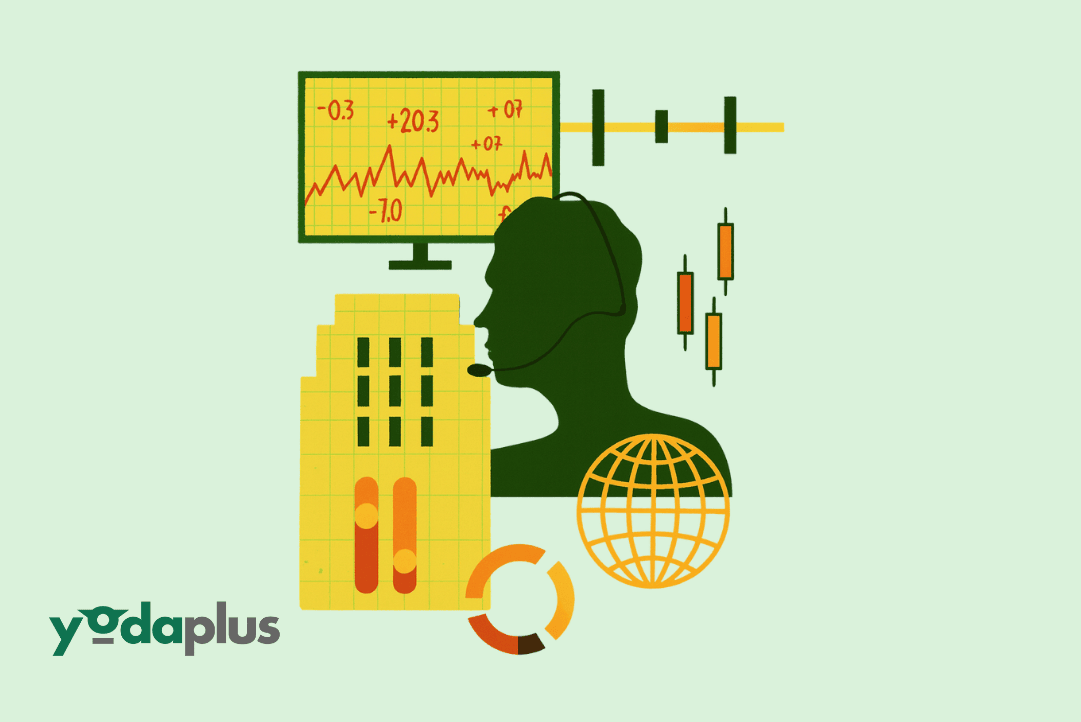
Equity Research Across Market Cycles
September 29, 2025 By Yodaplus
Equity research plays a critical role in shaping investment strategies and guiding decisions in uncertain markets. For corporate leaders, financial advisors, asset managers, and portfolio managers, market cycles create periods of both opportunity and risk. The way insights are generated, analyzed, and presented can make the difference between timely decisions and missed chances.
An equity research report is no longer just about gathering numbers. It is about producing insights that are concise, actionable, and reliable for stakeholders such as wealth managers, financial consultants, and financial data analysts. With the rise of AI for data analysis and automation, equity research is evolving to provide faster and more accurate decision support across different phases of the market.
This blog explores how equity research adapts across market cycles, why cycles matter for investors, and how modern tools like equity research automation and AI-driven platforms such as GenRPT Finance are transforming the boardroom.
Why Market Cycles Matter
Markets never move in a straight line. They shift between growth, maturity, decline, and recovery. Each phase creates new challenges for equity analysis.
-
Bull Markets: Optimism drives valuations higher, and investment research must focus on sustainable growth and valuation methods.
-
Bear Markets: Uncertainty dominates, making risk analysis and risk mitigation the top priority.
-
Recovery Cycles: Companies adjust strategies, and analyst reports become crucial for spotting early winners.
-
Mature Markets: Stability sets in, requiring deeper fundamental analysis, performance measurement, and ratio analysis.
For investment analysts, portfolio managers, and wealth advisors, the ability to align strategy with the right part of the cycle is essential.
The Role of Equity Research Across Cycles
Equity Research in Bull Markets
During expansion, equity research reports highlight market trends, growth investing opportunities, and profitability analysis. Companies may appear stronger than they are, so reports must emphasize financial transparency and equity valuation.
Equity Research in Bear Markets
When markets contract, confidence erodes. Financial reports and audit reports become central to assessing liquidity and solvency. Risk assessment, financial risk mitigation, and market risk analysis help leaders manage exposure. Scenario analysis and sensitivity analysis allow companies to test possible downturn impacts before acting.
Equity Research in Recovery Phases
Recovery requires spotting signals early. Investment insights and equity market outlooks provide guidance for capital allocation. Geographic exposure and emerging markets analysis become important, especially for companies looking beyond mature regions.
Equity Research in Mature Markets
Stability does not mean inactivity. Here, financial modeling, valuation methods, and enterprise value assessments guide investors. Reports must connect financial forecasting, revenue projections, cost of capital, and liquidity analysis with long-term investment strategy.
From Analyst Reports to AI-Driven Insights
Traditional analyst reports still play a role, but the sheer volume of data today makes manual work slow. AI for equity research and AI report generators now automate key steps:
-
AI data analysis processes large datasets, including financial reports, audit reports, and macroeconomic outlooks.
-
Equity research automation accelerates workflows, cutting days of manual effort into minutes.
-
Portfolio risk assessment and portfolio insights give leaders a clear view of exposure.
-
Market sentiment analysis highlights real-time investor behavior.
This technology does not replace human judgment but enhances it. For financial advisors, asset managers, and investment analysts, AI ensures insights are faster, more accurate, and easier to present.
Practical Applications Across Market Cycles
Strategic Planning
Leaders rely on equity market outlooks and macroeconomic outlooks to understand global trends. AI tools consolidate data from financial research tools and present clear investment insights that boards can act on.
Mergers and Acquisitions
Cycles influence valuations. In bull phases, market share analysis and profitability analysis highlight potential synergies. In downturns, AI-driven financial research supports due diligence with clarity on enterprise value and financial risk assessment.
Risk and Compliance
During volatile cycles, portfolio managers use portfolio risk assessment and risk mitigation strategies. AI-powered platforms monitor equity performance and highlight vulnerabilities before they escalate.
Investment Banking and Advisory
Investment banking teams depend on fundamental analysis and equity valuation to structure deals. Financial advisory services now integrate AI-driven equity research software, offering better trend analysis and performance measurement.
How GenRPT Finance Supports Equity Research
At Yodaplus, we built GenRPT Finance to help organizations modernize equity research. By combining ai for data analysis, ai report generators, and equity research automation, the platform produces board-ready equity research reports in seconds.
Key capabilities include:
-
Financial forecasting and liquidity analysis for CFOs.
-
Equity research software for continuous updates.
-
Scenario analysis, sensitivity analysis, and investment insights for decision-making.
-
Portfolio insights and equity market outlooks for financial advisors, asset managers, and wealth managers.
With explainable AI, every recommendation is backed by audit reports, financial accounting records, and analyst reports, ensuring trust.
Explore our guide: What is Equity Research and Why Does It Matter?
Related: What Portfolio Insights Can Tell You About Market Trends
Related: How Geographic Exposure Impacts Equity Research and Strategy
Conclusion
Equity research is never static. Across market cycles, it provides leaders with the tools to align decisions with changing conditions. From financial reports and audit reports to advanced ai for equity research and equity research automation, the process has become faster and more reliable.
For financial advisors, portfolio managers, wealth advisors, and investment analysts, the real advantage lies in clarity. With platforms like GenRPT Finance, equity research reports move beyond numbers to provide strategic investment insights that drive action.
As markets evolve, one constant remains: informed decisions create stronger outcomes. The future of equity analysis will belong to those who use AI-driven reporting to balance market trends, equity market outlooks, and investment strategy with confidence.